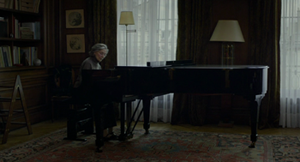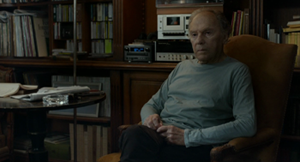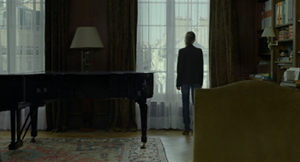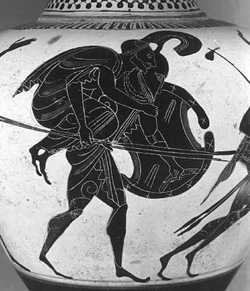The bubble
Georges n'est pas "intransigeant" et Anne ne fait pas de "caprices". Comment peut-on écrire ça ? Voici ce que Jennifer Homans, la femme de Tony Judt, a écrit après sa mort : "At some point—it is hard to say exactly when, but it was about the time he began Thinking the Twentieth Century—we entered what we came to call the bubble. The bubble was a closed world, an alternate reality, a place that we lived in and peered out of. It had walls—transparent, filmy walls—but they were like one-way mirrors: we could see out, but no one could really see in, or at least that is how it felt from the inside. We knew our world was strange and apart, governed by the rules of illness and dying rather than the rules of life. I could pierce through, sometimes, by taking a walk and seeing the sky, but Tony could not—and increasingly would not (1)."
 |
 |
 |
|
C'est de cette "bulle" dont il est question dans le film de Michael Haneke (2). Rien à voir avec le fait d'être ou non "misanthrope".
Cette phrase de J. Homans ("I could pierce through …") résume parfaitement la situation. À un moindre niveau, c'est la place qu'occupe le spectateur dans cette histoire (3). "J'ai senti que j'avais besoin de ce qu'on appelle, en musique, une fermata, explique M. Haneke, pour donner un peu d'air au film, après une séquence très dure. […] La série sur les tableaux vient juste après la séquence de la gifle que donne Trintignant à Emmanuelle Riva. […] J'ai opté pour l'élargissement de l'espace, en montrant des paysages de plus en plus vastes (4)."
Isabelle Huppert, Eva, joue un rôle essentiel dans le film – le critique des Cahiers ne l'a pas plus compris que le reste. Ses larmes ne sont pas de la "pitié mal placée" (5). "Je n'ai pas le temps de m'occuper de votre inquiétude, lui dit Georges. Elle ne me sert à rien." Un peu plus tard : "Qu'est-ce que tu proposes ? Tu veux prendre maman chez toi ? Tu veux l'expédier dans une maison de retraite, c'est ça que tu veux ? Allez, parle sérieusement avec moi." "Je ne la juge pas, explique M. Haneke. Elle se sent responsable de ses parents, mais elle ne sait pas quoi faire et ne peut donc penser qu'à des évidences qui n'aident en rien (6)."

Pourquoi M. Haneke n'a-t-il pas voulu jouer sur la corde sensible ? T. W. Adorno l'explique très bien : "Emotional music has become the image of the mother who says, "Come and weep, my child." It is catharsis for the masses, but catharsis which keeps them all the more firmly in line. One who weeps does not resist any more than one who marches. Music that permits its listeners the confession of their unhappiness reconciles them, by means of this "release", to their social dependence (7)." Anne se révolte contre ce qui lui arrive. On n'a pas à penser à sa place ou à pleurer, ce qui revient au même. Et le spectateur n'est pas un enfant cherchant consolation.
Timothy Garton Ash a rendu hommage à T. Judt : "Tony was a fighter, and he fought this illness with all his strength and will. Not for him the consolations of imagined eternity or Kübler-Rossish "acceptance." We laughed at the great line that the English playwright John Mortimer reported coming from the mouth of his dying father: "I'm always angry when I'm dying." He was a clear-sighted realist about what was happening to him, and what would or would not come after. Less than three weeks before he died, I said something to the effect that I knew he was going through hell. "Yes," he said, with the eye equivalent of that no longer possible shake of the head, "but hell is a nontransferable experience." So better to talk of other things: friends, bêtes noires, politics, books (8)."
En janvier 2010, T. Judt a publié un texte qui s'intitule "Night". Un autre titre possible pour cet extraordinaire film de M. Haneke.
Notes